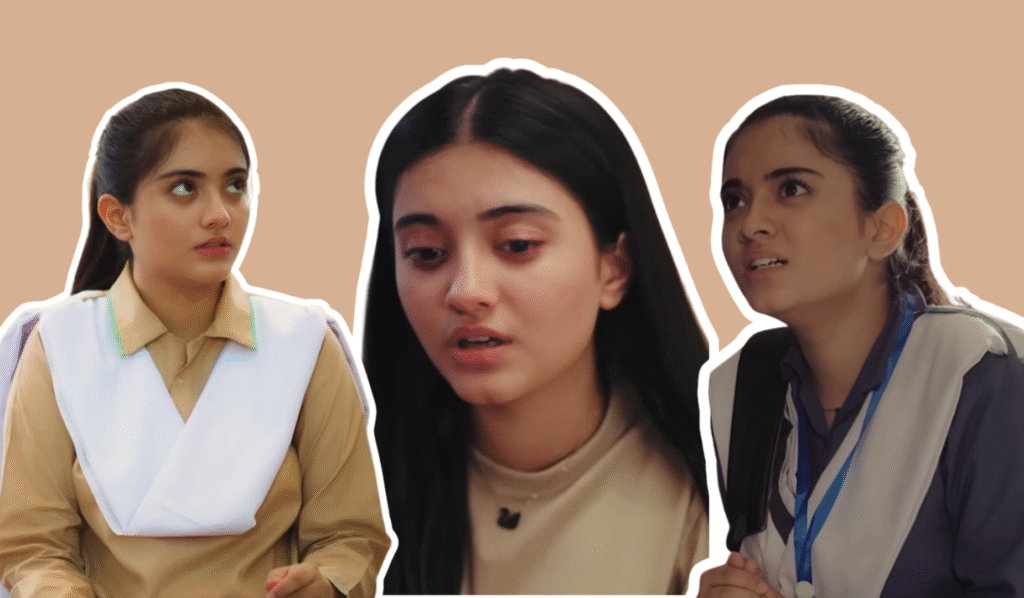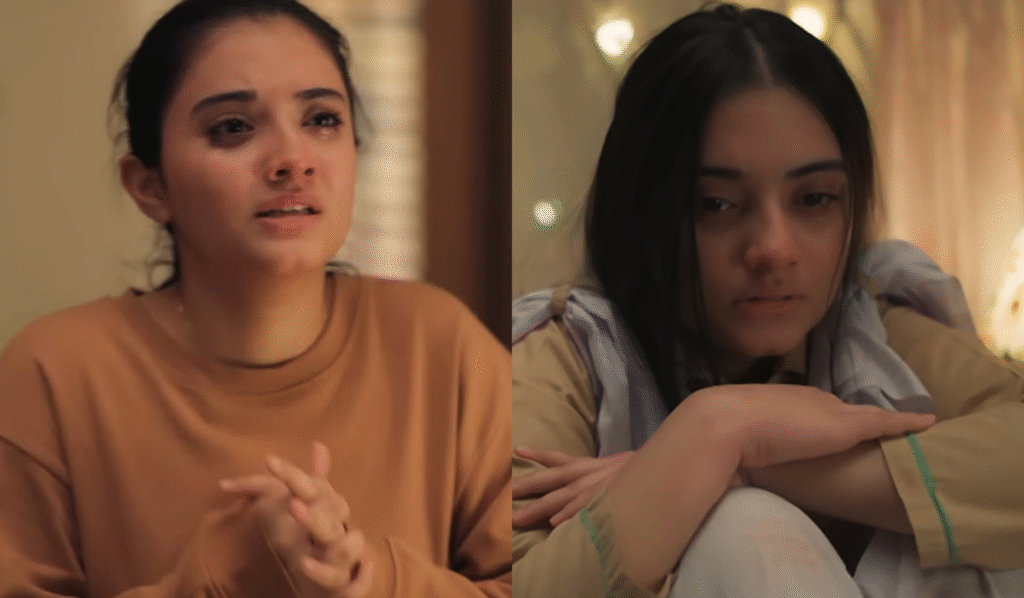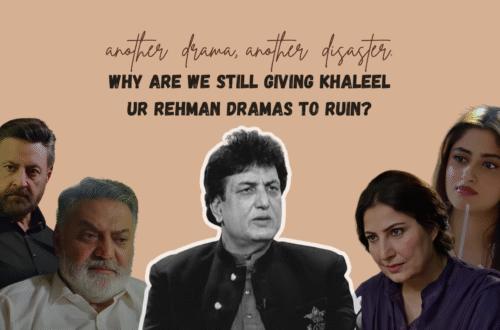There’s always that one performance that sneaks up on you.
It doesn’t come with heavy monologues or dramatic music. It doesn’t trend right away or flood your Instagram reels. But it lingers. Quietly. You keep thinking about it days after the episode ends. It finds its way back to you, in your own quiet moments, in conversations you’re not ready to have, in memories you haven’t fully named yet.
For me, that performance was Nooray Zeeshan as Aniya in Parwarish.
And honestly? I don’t think we’re giving her enough credit.
The Performance That Didn’t Ask For Attention — But Deserved It All
When Parwarish started airing, it had all the makings of a hit: a beloved returning pair in Aina Asif and Samar Jafri, a solid ensemble of veterans, a story packed with family politics, Gen-Z rebellion, and emotional reckonings. Naturally, everyone had their eyes on Maya, Wali, Amal, and Sameer.
But in the background, Nooray Zeeshan (@noorayzeeshanofficial) was building something delicate and devastating, something you didn’t notice until it broke you.
As Aniya, she carried the weight of a quiet, confused, soft-hearted teenager trying to adjust in a world that made her feel like she didn’t belong. She was bullied for how she spoke, how she looked, how “different” she was. And like many girls in real life, she didn’t fight back with big speeches or rage. She just… internalized it. Silently. Until it became too much.
The Scene That Said Everything — Without a Word
There was one scene that wrecked me. And no, it wasn’t a scream-filled confrontation or a dramatic breakdown. It was a still, almost breathless moment where Aniya stood near the window of her room, zoned out, hollowed by everything she’d been through.
The air in that scene was heavy. She wasn’t crying. She wasn’t reacting. She was just gone, standing there, physically present but emotionally so far away that it chilled me.
Nooray didn’t overplay it. She didn’t even move much. But that numbness? That zoning out? That eerie calm when someone’s breaking inside? She portrayed it with such realness that I could feel the weight of it in my chest. It was terrifying. And it was true.
Because that’s how pain often looks in real life. Quiet. Frozen. Disconnected.
Aniya Isn’t Just a Character — She’s Every Girl Who’s Felt Numb

What made this performance even more gutting was how deeply relatable Aniya’s pain felt to our generation. In one episode, she makes a video of herself, trying to process what she’s going through, and in a chilling moment, she even tries to harm herself. It’s not sensationalized. There’s no over-dramatization. It’s just there: raw, desperate, numb.
And for so many young people, especially girls, that moment hit like a punch to the gut. Because that kind of despair isn’t foreign to us. We know what it’s like to feel like no one’s listening. To feel like you’re falling apart in a world that keeps telling you to “stay strong” or “don’t make a fuss.”
When Aniya hit that point of numbness, where even pain didn’t feel like pain anymore, Nooray made it real. Unflinchingly, heartbreakingly real.
And that moment? That should’ve gone viral.
Not for shock value, not for drama, but because of how many people it represents, and how few shows are brave enough to show that kind of quiet suffering honestly.
Read Also: 5 Women Who Are Redefining Dance in Pakistan
From Real Pain to Real Performance
What hit even harder was learning that Nooray Zeeshan wasn’t just performing pain, she was pulling from her own. In an interview, she shared how she had been bullied in real life. Her uniform was stained. Her shoes stepped on. Her voice ignored.
She didn’t say it for sympathy. She said it plainly, the way girls who’ve been through it do, like it’s just a fact of growing up. And maybe that’s what made her portrayal of Aniya so haunting. She didn’t have to imagine what it’s like to feel out of place. She’s felt it.
And in Parwarish, she channeled that memory into a performance that was deeply empathetic, never performative. She played the version of the girl who never makes it to the counselor’s office. The girl who doesn’t even know what to say if someone asks, “Are you okay?”
That kind of role takes a different kind of strength. And Nooray brought it, completely.
She Didn’t Need a Loud Scene to Prove Herself — She Already Did

Aina, Samar, Reham, and Abul all delivered standout performances in this drama. That’s not up for debate. But I genuinely believe Nooray gave one of the most difficult, emotionally complex performances in the show. And she did it without any of the “spotlight-friendly” scenes we usually associate with great acting.
No monologues. No clap-back moments. No romantic arc to soften her pain. Just a girl… unraveling. And an actress brave enough to show us that unraveling in real time, without asking for applause.
We noticed. We felt it. We just didn’t say it loud enough.
This Is Me Saying It Now: Nooray, You Were Phenomenal
I don’t want this performance to get lost in the noise. I don’t want Nooray to be remembered as just the girl who played Wali’s sister. Because what she did as Aniya was art. It was healing. It was activism disguised as acting.
And if you’ve ever felt out of place, unheard, or emotionally exhausted, then Aniya wasn’t just a character. She was a mirror.
Dear Nooray, if you ever read this: You did something powerful. You made pain visible without making it loud. You showed us that even quiet characters can carry the weight of an entire narrative. You proved that stillness can be the loudest performance of all.
And for that, I see you. I respect you. And I hope we never forget it.
Because in a drama full of brilliance, you gave one of Parwarish’s best performances. Period.





